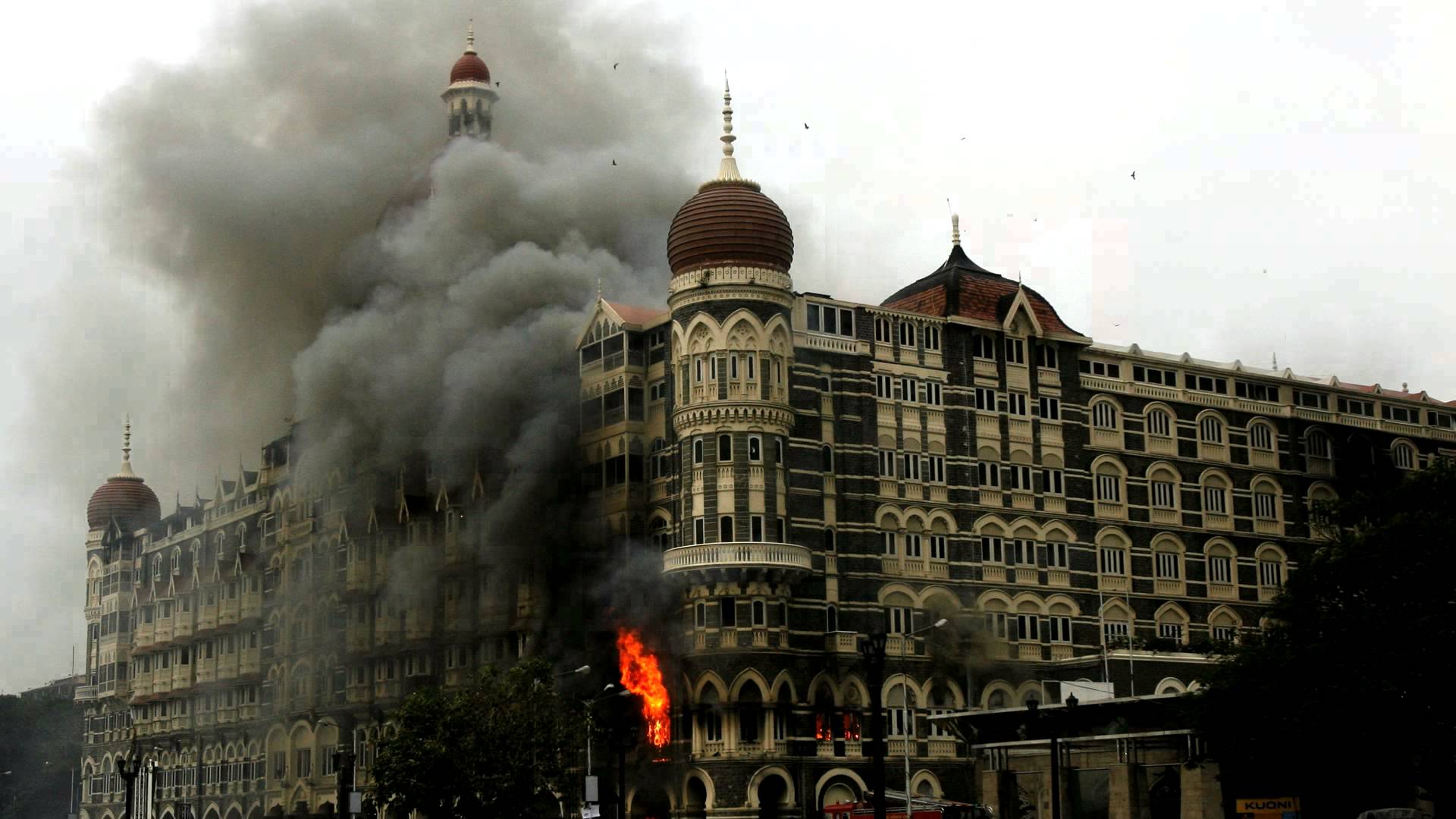 English
English

On the 12th anniversary of Mumbai terror attacks, political leaders and people on Thursday paid tributes to victims and security personnel who lost their lives in the siege on India’s financial capital.

Mumbai: On the 12th anniversary of Mumbai terror attacks, political leaders and people on Thursday paid tributes to victims and security personnel who lost their lives in the siege on India's financial capital.
The ghastly attacks, which began on November 26, 2008, lasted for four days, leading to the death of 166 people and injuring over 300.
While paying tribute, Union Minister Piyush Goyal said that the nation will be eternally grateful to all the security forces personnel who made the supreme sacrifice.
"Heartfelt tributes to the victims & martyrs of 26/11 #MumbaiTerrorAttack & salute to the strength & resilience of people of Mumbai. We will be eternally grateful to all the security forces personnel who valiantly fought & made the supreme sacrifice for Mother India on that day," Goyal tweeted.
Union Road and Transport Minister Nitin Gadkari also mourned the loss of those who lost their lives during the attack.
"Salute to the martyrs of Mumbai terror attack #MumbaiTerrorAttack," Gadkari tweeted.
Social media too saw an outpouring of gratitude and homage to the victims and security personnel as people trended several hashtags related to the 26/11 terror attacks. Meanwhile, in Washington DC, Indian-Americans and other community organisations held protests in front of the Capitol Hill. A truck with a billboard, reading "We demand justice" was seen outside Pakistan and Turkish embassies in Washington DC on the eve of the Mumbai terror attack anniversary.
Twenty-Six Eleven, as these attacks are often referred to, witnessed 10 Lashkar-e-Taiba terrorists coming to Mumbai via sea route from Pakistan and carried out a series of coordinated shooting and bombing attacks across the city.
After sailing to the city under the cover of darkness, the terrorists targeted major landmarks of
Mumbai with the first attack taking place at the crowded Chhatrapati Shivaji Terminus (CST) railway station.
Ajmal Amir Kasab and Ismail Khan carried out the attack at this station, killing as many as 58 people and injuring over 100. Kasab and Khan later entered to attack Cama Hospital, but the same was thwarted with the alertness of the hospital staff. They, however, killed 6 police officials, including city's Anti-Terrorism Squad Hemant Karkare in an ambush after leaving the hospital.
The second site of the attack was Nariman House business and residential complex where a Rabbi, his wife, and six others, including five Israeli citizens, were killed by the terrorists who first held them as a hostage.
The two-year-old child of the Rabbi couple, Moshe, survived in the attack. Then 'Baby Moshe' became a face of the innocent victims of ruthless terrorism.
In July 2017, Prime Minister Narendra Modi met Moshe during his visit to Israel. Later, in January 2018 the Israeli Prime Minister Benjamin Netanyahu on also met the survivor of 26/11, Moshe Holtzberg at Nariman House in Mumbai.The third site to come under attack on 26/11 was the Leopold Cafe followed by Taj Mahal Hotel and Tower. Four terrorists carried out the attack at the famous cafe before entering the iconic Taj hotel, where they killed as many as 31 people after laying a three-day siege at the hotel.
The other site to come under attack during the 26/11 was Oberoi-Trident hotel where another group of two terrorists entered at almost the same time, as other four had entered Taj. At Oberoi-Trident hotel the siege officially ended on the evening of November 28 with as many as 30 being killed in the horrific attack.
The attack and seize finally culminated on the morning of November 29, 2008, after the National Security Guards (NSG) secured the Taj Mahal Palace Hotel.
By the time commandos of the National Security Guards (NSG) gunned down the last terrorists who had been holed up in south Mumbai's Taj Mahal Palace hotel, over 160 people were killed and hundreds were left injured.
After the attack, it was established that the 10 terrorists had sailed to Mumbai from Pakistan's port city, Karachi. Their voyage to Mumbai involved hijacking fishing dingy and killing four of the five men crew, leaving one occupant to ferry them to Mumbai coast.
In these gruesome attacks, 9 terrorists were killed and the lone survivor, Ajmal Amir Kasab, was caught and was sentenced to death at Yerwada Central Jail in Pune in 2012.The Jamaat-ud-Dawah (JuD), whose mastermind was Hafiz Saeed, was believed to have plotted the 26/11 attacks.
New Delhi has, time and again, protested against Islamabad for harbouring Saeed, who is wanted for allegedly plotting the 2008 attack. India's stand on Hafiz has been supported by many International personalities including a former Central Intelligence Agency (CIA) director and former Afghanistan President.
Former CIA Director David Howell Petraeus in January 2018, said that there is substantial evidence against Jamaat-ud-Dawah (JuD) chief and UN-designated global terrorist Hafiz Saeed for his role in 26/11 Mumbai terror attack.
No related posts found.